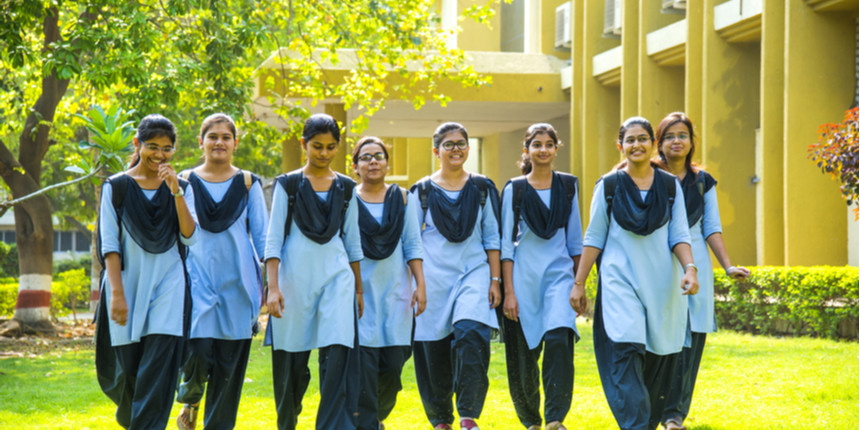Female students’ enrolment lowest in INIs: MoE
Press Trust of India | June 11, 2021 | 09:05 AM IST | 3 mins read
Gender Parity Index (GPI) in higher education in 2019-20 is 1.01 against 1.00 in 2018-19 indicating an improvement in access to higher education.

NEW DELHI: The share of girl students is lowest in institutes of national importance while female participation in professional courses is lower in comparison to academic courses, according to the All India Survey on Higher Education (AISHE) 2019-20.
However, there has been an overall increase of over 18 percent in female enrolment in higher education from 2015-16 to 2019-20, pointed out the report released on Thursday by the Ministry of Education. A total of 1,019 universities, 39,955 colleges and 9,599 stand-alone institutions participated in the survey, which provides key performance indicators on the current status of higher education in the country. "In the last five years from 2015-16 to 2019-20, there has been a growth of 11.4 per cent in the student enrolment. The rise in female enrolment in higher education during the period is 18.2 per cent.
Gender Parity Index (GPI) in higher education in 2019-20 is 1.01 against 1.00 in 2018-19 indicating an improvement in the relative access to higher education for females of eligible age group compared to males," the report said. According to the report, the number of female students is lowest for institutes under state private open university (2,499) followed by institutes under state legislature act (3,702) whereas the share is highest in-state public universities.
"Share of female students is lowest for institutes of national importance (24.7 per cent) followed by deemed universities government (33.4 per cent) and state private universities (34.7 per cent), whereas the share of female students for institutes under State Legislative Act is 61.2 per cent," the report said.
"Share of female students in-state public universities is 50.1 per cent and in central universities, it is 48.1 percent," it said.
Gender parity in professional courses
The survey found female participation in professional courses is lower in comparison to academic courses at both undergraduate and postgraduate levels. "Female participation is very high and has also increased sharply at MA, MSc and MCom levels during the last 5 years. However, female participation is still very low at undergraduate courses like BCA, BBA, BTech or BE and LLB," it said.
The report pointed out that it may be seen that the percentage share of the male is higher than female in almost every level, except MPhil, postgraduate and certificate. "Student enrolment at undergraduate level has 50.8 per cent male and 49.2 per cent female.
Diploma has a skewed distribution with 65.1 per cent male and 34.9 per cent female. PhD level has 55 per cent male and 45 per cent female. Integrated levels have 56.2 per cent male and 43.8 per cent female. PG Diploma student enrolment is 53.6 per cent for male students and 46.4 per cent for female students," it said.
The relatively higher share of male enrolment than female enrolment of students is also seen across the levels in most of the states. Uttar Pradesh, with its highest student enrolment in India, has 49.1 per cent male and 50.9 per cent female students. Maharashtra has the second-highest student enrolment with 54.2 per cent male and 45.8 per cent female students.
Thereafter, Tamil Nadu has 50.5 per cent male and 49.5 per cent female students, and Rajasthan has 52.2 per cent male and 47.8 per cent female students. In Karnataka, the percentage of female students enrolled is 50.2 per cent whereas in Madhya Pradesh more male students are enrolled as compared to female students.
Write to us at news@careers360.com.
Follow us for the latest education news on colleges and universities, admission, courses, exams, research, education policies, study abroad and more..
To get in touch, write to us at news@careers360.com.
Next Story
]BCI accepts recommendations of panel on LLB exams
Being the regulator of legal education in the country, the BCI had constituted a High Level Committee of Expert to deliberate upon the issue of mode of intermediate semester examination, evaluation and promotion of intermediate LL.B students in view of the unprecedented situation arising due to the pandemic.
Press Trust of India